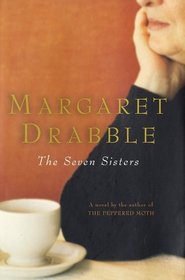Helpful Score: 4
This was a really interesting book. It was the sort of book that I realized I liked when I was about three quarters finished with it; but until that point it was rather difficult to get through. A background in classical literature would be helpful; since I lack a familiarity with Virgil, I missed some of the references and symbolism. It would also be a great book to use with a book club, as there are so many issues, particularly women's issues, that would be fascinating to discuss with others.
Helpful Score: 3
After a divorce from a husband who betrayed her and estrangement from daughters and friends, a woman on the far side of middle age tries to make a new life-moving from a university town in the country to the heart of London. That's a bare bones description of an extremely well written book that explores many of life's issues-and kept me reading for two days straight!
Helpful Score: 2
It was okay....not a satisfying ending.
Helpful Score: 1
It's hard to get across just how flat-out thrilling, how readable, how absorbing is Margaret Drabble's novel The Seven Sisters. It sounds positively dull when you describe it: Candida Wilton, a faculty wife of late middle age, has been dumped by her allegedly do-gooder husband. Her three daughters aren't too impressed with her, either. The mousy Candida decamps to an inglorious flat in London, where she measures out her time in visits to the health club, trips to the grocery store, and her weekly evening class on Virgil. She tentatively makes a few new friends and rediscovers some old ones. This opening section of the book, told in diary form, is a marvel of tone. With very little action, Drabble makes Candida's forays into the world quietly electrifying. One of her new pleasures is recording in her diary her mounting dislike of her ex-husband. You sense a giddy freedom: "Andrew had come to seem to me to be the vainest, the most self-satisfied, the most self-serving hypocrite in England. That kindly twinkle in his eyes had driven me to the shores of madness."
Ah, but there's more life for Candida yet. A small, unexpected inheritance is left to her, and so she organizes her friends--all female, mostly aged, mostly unmarried--into a tour of Naples as Virgil describes it in The Aeneid. Their holiday is a fictional tour-de-force: by turns a hilarious send-up of group dynamics, a metafictional lark, a feminist rant, and a dark acknowledgement of Candida's mortality. In the end, Drabble's novel is a very serious one, and a very good one.
Ah, but there's more life for Candida yet. A small, unexpected inheritance is left to her, and so she organizes her friends--all female, mostly aged, mostly unmarried--into a tour of Naples as Virgil describes it in The Aeneid. Their holiday is a fictional tour-de-force: by turns a hilarious send-up of group dynamics, a metafictional lark, a feminist rant, and a dark acknowledgement of Candida's mortality. In the end, Drabble's novel is a very serious one, and a very good one.
Helpful Score: 1
This book was so engaging. I could hardly put it down. Inspired me to check out the rest of Drabble's fiction works.




